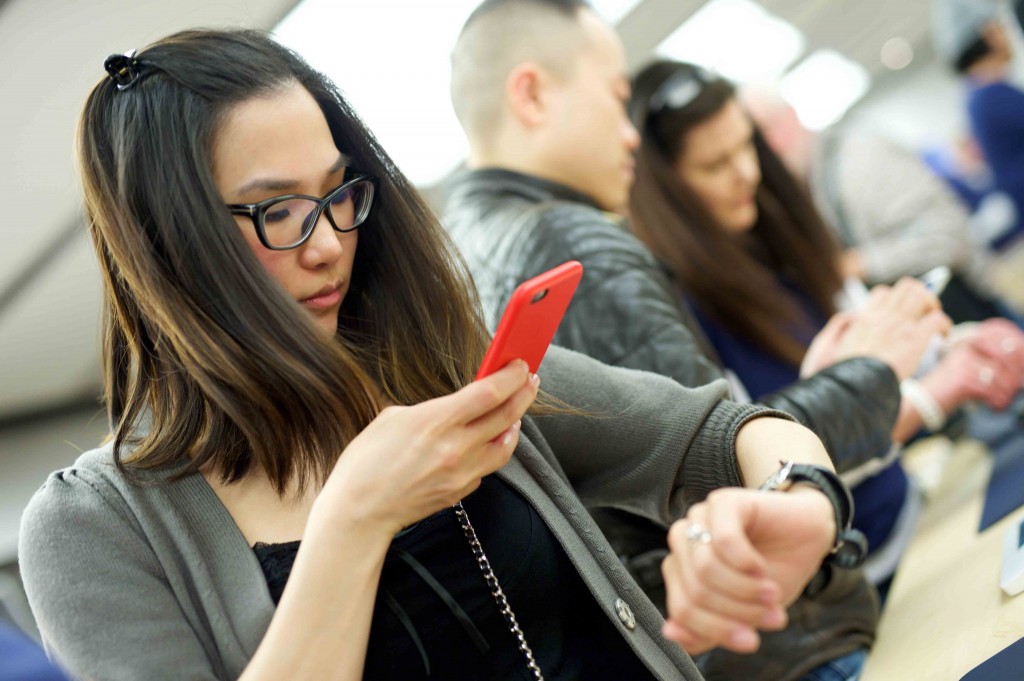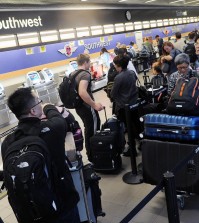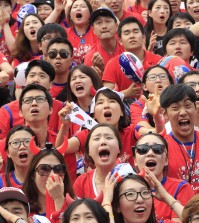- California Assembly OKs highest minimum wage in nation
- S. Korea unveils first graphic cigarette warnings
- US joins with South Korea, Japan in bid to deter North Korea
- LPGA golfer Chun In-gee finally back in action
- S. Korea won’t be top seed in final World Cup qualification round
- US men’s soccer misses 2nd straight Olympics
- US back on track in qualifying with 4-0 win over Guatemala
- High-intensity workout injuries spawn cottage industry
- CDC expands range of Zika mosquitoes into parts of Northeast
- Who knew? ‘The Walking Dead’ is helping families connect
S. Korean gov’t vows to fight teen smartphone addiction
SEOUL, April 13 (Yonhap) — The government said Monday it will take a set of measures to tackle the problem of smartphone addiction among adolescents that has been worsening in recent years.
According to a survey commissioned by the Ministry of Science, ICT, and Future Planning, 29.2 percent of the adolescents were heavily dependent on smartphones last year, up sharply from 11.4 percent in 2011. The percentage was more than twice the comparable figure of 11.3 percent for adults.
The study was conducted last year on 15,000 South Koreans aged 10-59. It defines those who have difficulty in their everyday lives due to dependency on smartphones as the addiction-prone group.
By age, the portion of addiction-prone smartphone users in their 20s came to 19.6 percent, with such respondents in their 30s, 40s, and 50s coming to 11.3 percent, 7.9 percent, and 4.8 percent, respectively.
Middle-school students were more likely to be addicted to smartphones than other groups, while children from double-income families were more inclined to become addicted.
More than half of the teenagers responded that smartphones distract them from studying, while 51.7 percent said that spending a lot of time on smartphones has become a habit. Another 49.6 percent said they become jittery when not using smartphones, according to the findings.
To deal with the issue of smartphone addiction, the ministry said it will provide related education programs at schools, and issue counseling guidelines for high-risk students.
The government also plans to provide teenagers from low-income bracket households with an incentive of up to 500,000 won (US$456) to receive special treatments from hospitals in case of serious addictions.
Meanwhile, the survey also showed that the respondents spent 256.5 minutes on smartphones everyday, while the addiction-prone group put in 318.5 minutes.
Mobile messengers accounted for 40.3 percent of the time, followed by news with 37.2 percent and games with 21.7 percent, according to the survey.

















Pingback: Week 14 – Social Problems – Step 2 and 3 | Internet English - Spring 2015